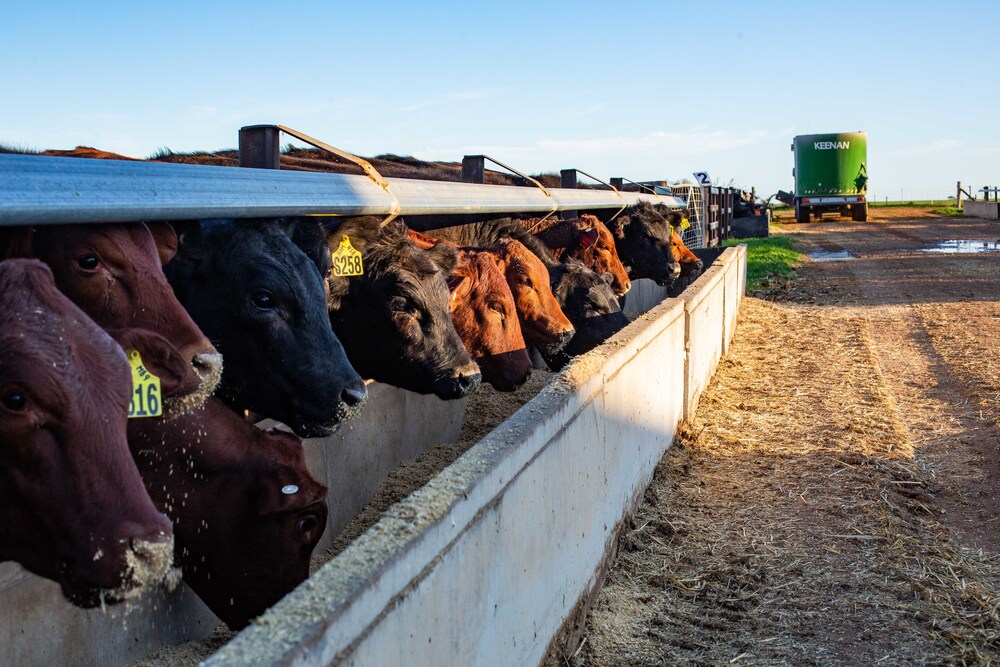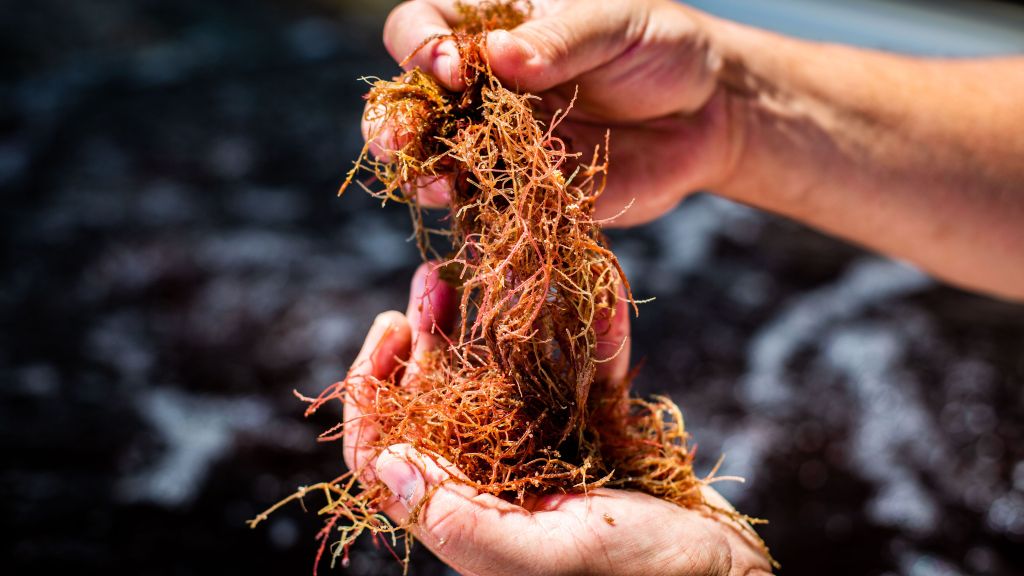Climate tech start-up CH4 Global announced with CirPro Australia that the first group of cattle to have been fed commercial quantities of CH4 Global’s methane-reducing feed additive have been processed.
CirPro Australia is an advanced processor specialised in the production of traditional proteins. The two companies said in a joint statement that having met all relevant welfare and quality requirements, the reduced-methane beef from these initial animals was heading for the domestic Australian market.
CH4 Global said that the 70 head of cattle were fed the company’s Methane Tamer for 100 days at a feedlot in South Australia. The company claims that by incorporating the seaweed-based additive into the cattle’s diet, an estimated 105 metric tons of CO2-equivalent emissions – the equivalent of carbon sequestered by over 1,700 tree saplings for 10 years – were avoided.

According to the US Environmental Protection Agency, 1.5 billion cattle, raised specifically for meat production worldwide, emit at least 231 billion pounds of methane into the atmosphere each year — that’s excluding the emissions of any other livestock.
CH4 Global is one of a group of Australian start-ups – such as Provectus Algae and Sea Forest – trying to mitigate enteric methane emissions using the unique properties of Asparagopsis seaweed.
CH4 Global claims its Methane Tamer can deliver a decrease of 70 percent when fed to cattle in small amounts as an additive to their daily rations.

“Together with our partners, we are significantly increasing the number of cattle consuming Methane Tamer while also establishing the ability to export this reduced-methane beef to meet growing global demand,” said CH4 Global’s CEO Steve Meller.
“This will enable – for the first time – a complete end-to-end supply chain from seaweed cultivation to consumers’ plates, without relying on carbon rebates or credits. That’s the key to successfully scaling this solution commercially, sustainably, and globally,” Meller added.
Reg Smyth, CEO of CirPro Australia, noted that the partnership with CH4 Global had proven that feeding the product at commercial scale improves efficiency without any danger or harm to the animals.
“The cattle that were given the Methane Tamer supplement achieved the same weight gain as the control group while consuming less feed per day, representing an improvement in feed conversion efficiency of a few percent over the 100-day period,” Smyth said.
CH4 Global made its first commercial delivery of Methane Tamer to CirPro In January 2024. The company said at the time that the reduced-methane beef resulting from the partnership will initially be sold to retailers in South Australia, with export sales to commence in September.

Australia’s national science agency CSIRO collaborated with Meat & Livestock Australia and James Cook University to hold feedlot trials in beef cattle using less than 1% of Asparagopsis, which they said showed an over 95% reduction in methane production.
However, a July 2023 article in The Guardian reported that an Australian trial of seaweed cow feed failed to achieve the hoped-for methane cuts, suggesting that factors such as measuring techniques, supplement concentration, and breed differences may have contributed to the lower results.
Countries such as Sweden are also exploring the emissions-reducing potential of red seaweed-based additives for cattle.
Primary operating out of lab spaces in Australia and New Zealand, CH4 Global is leveraging its US base in Nevada to collaborate with the recently established Food Entrepreneurship and Manufacturing Institute (FEMI) under Purdue’s Department of Food Science.
The company said in a recent announcement that it was working with Purdue to gather comprehensive data on microbial properties, nutritional content, shelf-life, particle size and bulk density, which CH4 says are essential for integrating seaweed into farming practices and creating a product easily consumed by cattle.
CH4 Global was recently ranked among America’s Top GreenTech Companies by TIME Magazine.
To stay up-to-date on the latest industry headlines, sign up to Future Alternative’s enewsletter.
Posted on:


